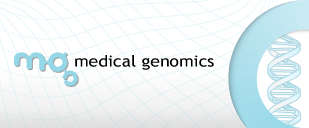Upon receiving the samples we will extract the
DNA from the swabs in absolutely sterile conditions and subject
it to a process known as polymerase chain reaction (PCR). Using PCR we
can screen hundreds of genes even in a very minute DNA sample. Once
the reaction is completed the products are analysed on the state of
the art DNA sequencing machine were the differences between the
samples are unambiguously resolved.
The data are then fed into a
statistical software package specifically designed to calculate
probabilities of paternity, maternity and other degrees of kinship
based on genetic analysis. The software will assign each sample a
specific probability of being related to the control sample (which is
the child's DNA in the Paternity/Maternity Test, or DNA of an alleged
relative in the Close Relative Test). If this probability is no less
then a typical probability for this type of relatedness
depending on the number of genes screened and the ethnical origin of
the individuals involved in testing then the kinship is confirmed,
otherwise it must be rejected.
To guarantee the quality and
reliability of our result we analyse two DNA samples from each
individual. The samples are investigated by two independent
groups of PhD-qualified scientists who perform the described
procedures
completely independently and produce a scientific report. If, and only
if, both reports show identical results the testing is considered
completed. Otherwise the whole process will be repeated.
Remember:
you pay only for one analysis, we do the second one (and any other
subsequent
tests should they become necessary) absolutely free
to ensure you get the best possible
service for your money!
Once the testing is completed we will report the
results straight back to you and, should it be necessary, assist you
in arranging counselling with a specialist.
To order a test, please follow this link
| 






